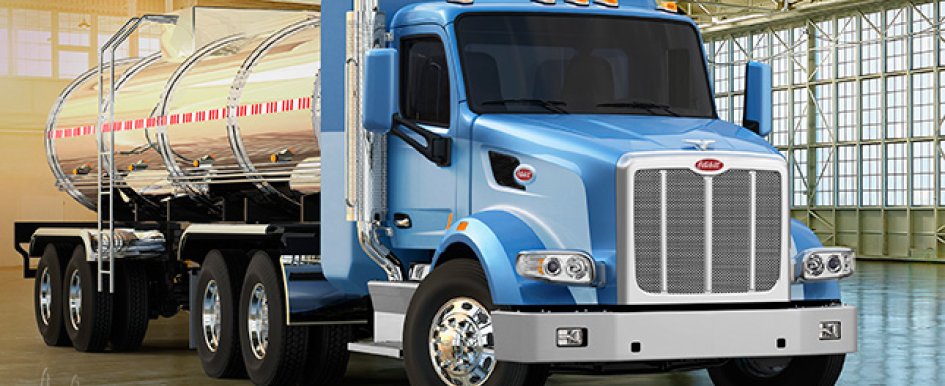
Converting your fleet to natural gas with future truck purchases is a significant, business-altering decision. While diesel prices have fallen to their lowest level since 2010, compressed natural gas (CNG) and liquefied natural gas (LNG) are still less expensive. Companies are measured by the energy content called diesel gas equivalent. With domestic natural gas production expected to reach record levels this year, prices are expected to remain low.
If natural gas burns cleaner and is cheaper than diesel, why do natural gas vehicles comprise only about 5 percent of North American retail sales? For many owners, diesel-powered trucks will continue to make the most sense for their business. It is a proven, reliable technology and it is never hard to find a gas station for refueling.
Acquisition cost of a natural-gas-powered truck is higher than a diesel-powered vehicle. Converting to natural gas can typically provide a return on investment in less than three years due to the lower cost of fuel and lower operating costs, though (the more fuel consumed, the quicker the ROI). Additionally, natural gas pricing has historically been much less volatile than diesel fuel prices.
The cost-benefit analysis usually proves natural gas vehicles to be a profitable investment. However, the challenges start to become evident in the lack of locations available to fill the tanks of those vehicles. The retail infrastructure for diesel is much more widespread than that of natural gas. In fact, many fleets that rely on natural gas have additionally invested in creating their own fueling infrastructure.
However, the natural gas fueling infrastructure continues to expand every year. The general industry sentiment is that natural gas availability will be less and less of a concern in the years ahead. If they do their homework, customers with local and regional operations can generally optimize routes and downtime hours to get their vehicles filled using the existing infrastructure.
The fear of not being able to find a regular, reliable source for natural gas refueling is called "range anxiety." While this is a concern, fleet owners and managers who are committed to making the switch are resourceful and can successfully improvise a solution to get the job done.
Sometimes, that means researching and strategizing routes to take full advantage of the existing infrastructure. Other fleets install their own fueling stations and optimize routes to take advantage of their own fueling network. They could also turn this option into additional revenue by selling natural gas to other fleets.
Deciding to install a natural gas fueling station is no small commitment. It will potentially cost from the mid six-figures to the low seven-figures, depending on the type of fuel and the capacity. For example, a CNG station capable of fueling four vehicles simultaneously can cost up to $1 million.
Although LNG has about two-and-a-half times the energy density of CNG, thus utilizing smaller tanks on trucks and longer driving distances, it must be cooled to -259 degrees F (-161 degrees C). This means special, expensive insulated tanks are required to store LNG, which is one reason the CNG fueling stations are much more prevalent than LNG stations. According to the U.S. Department of Energy, in 2014 there were 752 public CNG stations in the country—92 percent of all public natural gas fueling stations.
Another factor to consider is local, state and federal bids are increasingly contingent on the greenness and environmental friendliness of the bidders' equipment. For the average contractor with operations in or near urban municipalities, there may be a robust and convenient natural gas refueling infrastructure already in place. This makes the cost-benefit analysis of converting to a natural gas fleet a much simpler equation. Smaller companies simply cannot commit to installing their own fueling station unless they plan to sell the fuel to other companies, too.
Talk to others who have made the commitment and experts who have helped similar businesses convert to natural gas vehicles or install fueling stations. It's a long-term investment and business owners must ensure it would work with their future business strategies. Like any major investment or expansion, owners need to make sure the decision makes good business sense and shows a high promise for return on investment.
